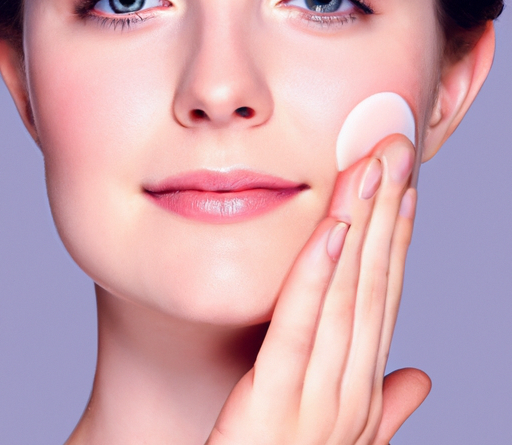Imagine having smooth and flawless skin that makes you feel confident and radiant every day. That dream can now become a reality with the help of the “10 Best Beauty Tips For Smooth Skin.” This incredible product is packed with expert advice and insider knowledge, giving you access to the top ten tips for achieving and maintaining silky-smooth skin. Whether you struggle with acne, dryness, or rough patches, these carefully curated tips will revolutionize your skincare routine and leave you with the complexion of your dreams. Say goodbye to dull and uneven skin, because with the “10 Best Beauty Tips For Smooth Skin,” you’re just a few steps away from unlocking your skin’s true potential.

This image is property of images.unsplash.com.
Daily Skincare Routine
Having a daily skincare routine is essential for maintaining smooth and healthy skin. It’s not just about applying random products onto your face, but rather following a consistent regimen that targets specific skincare needs. Here are some important steps to include in your daily skincare routine:
Cleanse your face twice a day
Cleansing your face is a fundamental step in any skincare routine. It helps remove dirt, oil, and impurities that can clog your pores and lead to acne breakouts. Make sure to choose a gentle cleanser that suits your skin type, whether it’s oily, dry, or sensitive. Use lukewarm water, as hot water can strip your skin of its natural oils, causing dryness and irritation. Gently massage the cleanser onto your face in circular motions, then rinse thoroughly and pat dry with a clean towel.
Exfoliate regularly
Exfoliation is a crucial step in achieving smooth skin by removing dead skin cells that can make your complexion look dull and rough. Choose an exfoliant that suits your skin type, whether it’s a physical scrub or a chemical exfoliator like AHAs or BHAs. Using gentle circular motions, apply the exfoliant to your damp skin, focusing on areas prone to dryness or congestion. Avoid over-exfoliating, as it can damage your skin’s protective barrier and result in irritation. Aim to exfoliate 2-3 times a week for optimal results.
Moisturize daily
Keeping your skin well-hydrated is key to maintaining a smooth and plump complexion. After cleansing and exfoliating, apply a moisturizer that suits your skin type. If you have oily skin, opt for a lightweight, oil-free moisturizer. For dry skin, choose a richer, more nourishing formula. Applying moisturizer immediately after showering helps lock in moisture and keep your skin hydrated throughout the day. Don’t forget to extend the moisturizer down your neck and onto your chest for a complete skincare routine.
Use sunscreen every day
Sun protection is crucial in preventing premature aging and maintaining smooth and healthy skin. Regardless of the weather or season, make it a habit to apply sunscreen daily. Look for a broad-spectrum sunscreen with an SPF of at least 30 to shield your skin from both UVA and UVB rays. Apply it generously to all exposed areas, including your face, neck, and any other body parts exposed to the sun. Remember to reapply every two hours, especially if you’re spending time outdoors or swimming.
Hydration is Key
Hydrated skin is healthy skin, and ensuring your body stays well-hydrated is just as important as your skincare routine. Drinking plenty of water throughout the day helps flush out toxins, improves circulation, and keeps your skin plump and supple. In addition to staying hydrated internally, you can incorporate hydrating products into your skincare routine to give your skin an extra boost.
Drink plenty of water
For smooth and glowing skin, make sure to drink an adequate amount of water every day. The general guideline is to aim for at least eight 8-ounce glasses of water, but listen to your body’s needs and adjust accordingly. Proper hydration not only helps your skin, but it also benefits your overall health and well-being.
Use hydrating face masks
Face masks can be a refreshing treat for your skin, and hydrating masks are especially beneficial in moisturizing and rejuvenating your complexion. Look for masks that contain ingredients like hyaluronic acid or aloe vera, known for their hydrating properties. Apply the mask to your cleansed face and leave it on for the recommended time, allowing your skin to absorb the beneficial ingredients. Afterward, gently massage any remaining residue into your skin or rinse it off and follow up with your regular moisturizer.
Apply hydrating serums
Serums are concentrated formulas packed with active ingredients that can penetrate deeper into your skin. hydrating serums, typically formulated with humectants like glycerin or ceramides, are designed to attract and lock in moisture, making them an excellent addition to your skincare routine. Apply a few drops of serum onto your cleansed face and gently massage it in, allowing the product to absorb fully. Follow up with your moisturizer to seal in the benefits.
Eat a Healthy Diet
Your diet plays a significant role in the health of your skin. Consuming a balanced and nutritious diet not only benefits your overall well-being but also contributes to smooth and radiant skin. Here are some dietary tips to incorporate into your lifestyle:
Consume fruits and vegetables
Eating a variety of fruits and vegetables provides your body with essential vitamins, minerals, and antioxidants that promote healthy skin. Opt for colorful produce like berries, leafy greens, oranges, and carrots, as they are rich in vitamins A, C, and E, which contribute to skin health. These nutrients help protect your skin from oxidative stress, promote collagen production, and maintain its elasticity.
Include foods rich in omega-3 fatty acids
Omega-3 fatty acids are known for their anti-inflammatory properties and are beneficial for skin health. Include foods like fatty fish (salmon, mackerel, sardines), chia seeds, flaxseeds, and walnuts in your diet to reap the benefits of these healthy fats. Omega-3 fatty acids help maintain the integrity of your skin’s barrier, preventing moisture loss and keeping your skin hydrated and supple.
Limit processed and sugary foods
Highly processed foods and those high in refined sugars can contribute to inflammation in the body, which can negatively impact your skin. These foods may lead to breakouts, increased oil production, and a dull complexion. Opt for whole, unprocessed foods whenever possible and limit your intake of sugary snacks, sodas, and processed snacks. Instead, choose healthier alternatives like fresh fruits, nuts, and whole grains.
Avoid Unhealthy Habits
In addition to maintaining a healthy diet and skincare routine, avoiding certain unhealthy habits is crucial for achieving and maintaining smooth skin. Here are some habits to steer clear of:
Don’t smoke
Smoking is not only harmful to your overall health but also has significant negative effects on your skin. The chemicals in tobacco smoke can constrict blood vessels and decrease blood flow to the skin, leading to a dull complexion, premature aging, and an increased risk of wrinkles and fine lines. Quitting smoking is not only beneficial for your skin but also for your overall well-being.
Limit alcohol consumption
Excessive alcohol consumption can dehydrate your body, leading to dry and dull skin. Alcohol also increases inflammation in the body and can exacerbate conditions like acne and rosacea. While enjoying an occasional drink is fine, it’s essential to drink in moderation and stay hydrated with water to counteract the dehydrating effects of alcohol.
Get enough sleep
Lack of sleep can wreak havoc on your skin, resulting in a tired and dull appearance. During sleep, your body goes into repair mode, and your skin has a chance to rejuvenate. Aim for 7-9 hours of quality sleep each night to promote healthy skin and overall well-being. Establishing a regular sleep schedule and creating a relaxing bedtime routine can help improve the quality of your sleep.

This image is property of images.unsplash.com.
Stress Reduction
In today’s fast-paced world, managing stress is essential not only for your mental well-being but also for the health of your skin. Stress can lead to a variety of skin issues, including acne breakouts, increased oil production, and a compromised skin barrier. Incorporate stress-reducing activities into your daily routine to promote smooth and healthy skin.
Practice relaxation techniques
Engaging in relaxation techniques like deep breathing exercises, meditation, or yoga can help reduce stress levels and promote a sense of calm. Find strategies that work best for you and incorporate them into your daily routine. Taking a few moments each day to focus on your breath or practice mindfulness can make a significant difference in your overall stress levels.
Engage in physical activities
Exercise not only benefits your body but also promotes healthy skin. Physical activity improves blood circulation, which delivers essential nutrients and oxygen to your skin cells. It also helps reduce stress and promotes the release of endorphins, which are natural mood enhancers. Find an exercise routine that you enjoy, whether it’s going for a jog, practicing yoga, or participating in a dance class.
Prioritize self-care
Taking time for yourself and engaging in activities you enjoy is vital for maintaining mental and emotional well-being. Self-care can be something as simple as reading a book, taking a relaxing bath, or indulging in a hobby. Prioritizing self-care allows you to recharge and reduces stress levels, ultimately benefiting your skin’s health.
Cleansing Tips
When it comes to cleansing your skin, there are a few tips and techniques to keep in mind to ensure you’re effectively removing impurities without causing damage.
Use a gentle cleanser
Choosing the right cleanser for your skin type is crucial. Look for a gentle, pH-balanced cleanser that won’t strip your skin of its natural oils. Avoid harsh cleansers with sulfates or alcohol, as they can disrupt your skin’s moisture balance and lead to dryness and irritation. A mild, non-foaming cleanser is usually a safe bet for most skin types.
Avoid hot water
While it may be tempting to cleanse your face with hot water, it can actually be detrimental to your skin’s health. Hot water can strip away your skin’s natural oils, leaving it dry, red, and irritated. Opt for lukewarm water instead, and rinse your face thoroughly to ensure all traces of cleanser are removed.
Pat your skin dry
After cleansing, resist the temptation to rub your face vigorously with a towel. Instead, gently pat your skin dry with a soft, clean towel. Rubbing your skin can cause friction and irritation, especially if you have sensitive or acne-prone skin. Patting your skin dry allows it to retain some moisture and prevents unnecessary damage.

This image is property of images.unsplash.com.
Exfoliation Techniques
Exfoliation is an essential step in any skincare routine, but it’s crucial to exfoliate correctly to achieve smooth and radiant skin. Here are some tips to keep in mind when exfoliating:
Choose the right exfoliant for your skin type
Not all exfoliants are created equal, and it’s important to choose the right one for your skin type. If you have sensitive skin, opt for a gentler exfoliant like a lactic acid or enzyme-based product. For oily or acne-prone skin, a salicylic acid exfoliant can help unclog pores. If you’re unsure, consult with a dermatologist to determine the best exfoliant for your specific needs.
Gently exfoliate in circular motions
When exfoliating, apply the product to your damp skin and use gentle circular motions to massage it in. Avoid applying excessive pressure or scrubbing too harshly, as it can damage your skin and cause redness and irritation. Let the exfoliant do the work and be gentle with your skin.
Don’t over-exfoliate
Over-exfoliating can do more harm than good, leading to inflammation, dryness, and sensitivity. Follow the product’s instructions regarding frequency, and if you’re using a physical scrub, limit usage to 2-3 times a week. If you’re using a chemical exfoliant, start with a lower concentration and gradually increase if tolerated well. It’s important to listen to your skin and adjust your exfoliation routine accordingly.
Moisturizing Tricks
Moisturizing is a vital step in any skincare routine to keep your skin hydrated, plump, and healthy. Here are some tricks to enhance the moisturizing process:
Use a moisturizer suitable for your skin type
Just like with cleansers, choosing the right moisturizer for your skin type is crucial. If you have oily skin, opt for a lightweight, oil-free moisturizer that won’t clog your pores. Dry skin may benefit from a richer, more emollient moisturizer. Combination skin requires a balance between hydration and oil control. Find a moisturizer that suits your skin’s specific needs to reap the maximum benefits.
Apply moisturizer immediately after showering
The best time to apply moisturizer is when your skin is slightly damp, as it helps lock in moisture more effectively. After showering or cleansing your face, pat your skin dry and apply moisturizer immediately. The dampness of your skin helps the moisturizer penetrate deeper and provides optimal hydration.
Consider using a humidifier in dry environments
Dry environments, especially during winter months, can dehydrate your skin. Consider using a humidifier in your home or office to add moisture to the air. This helps prevent moisture loss from your skin and keeps it hydrated and supple. Set the humidity level to around 40-50% for optimal comfort and skin health.

Sun Protection
Protecting your skin from the harmful effects of the sun is crucial in maintaining smooth and healthy skin. Here are some sun protection tips to keep in mind:
Wear broad-spectrum sunscreen
When it comes to sunscreen, look for a broad-spectrum formula that protects against both UVA and UVB rays. Choose a sunscreen with an SPF of at least 30 for adequate protection. Apply it generously to all exposed areas, including your face, neck, ears, and any other parts of your body exposed to the sun.
Reapply sunscreen every two hours
Sunscreen is not a one-time application. To ensure continuous protection, make sure to reapply sunscreen every two hours, or more frequently if you’re sweating or swimming. Even water-resistant sunscreens can wear off, so it’s essential to stay diligent with reapplication to prevent sunburn and skin damage.
Seek shade during peak sun hours
The sun’s rays are the strongest between 10 a.m. and 4 p.m., so it’s important to seek shade during these hours whenever possible. If you need to be outside, wear protective clothing like hats, sunglasses, and long-sleeved shirts to minimize sun exposure. Remember, even on cloudy or overcast days, UV rays can still penetrate through the clouds, so sunscreen is necessary regardless of the weather.
Professional Skincare Treatments
While a solid at-home skincare routine is crucial, professional skincare treatments can provide additional benefits and address specific concerns. Consider the following treatments for smoother and healthier skin:
Consider getting a facial
Facials are a popular professional skincare treatment that offers various benefits. A skilled aesthetician can analyze your skin, deep cleanse, extract impurities, and perform treatments tailored to your skin type and concerns. Facials can improve circulation, exfoliate dead skin cells, and provide nourishment, resulting in smoother, more radiant skin.
Try microdermabrasion or chemical peels
Microdermabrasion and chemical peels are more advanced treatments that work by exfoliating the outermost layer of the skin. This process helps reduce the appearance of fine lines, wrinkles, acne scars, and hyperpigmentation, resulting in smoother and more even-toned skin. These treatments should be performed by a trained professional to ensure optimal safety and effectiveness.
Consult a dermatologist for specialized treatments
For specific skin concerns or conditions, it’s best to consult with a dermatologist. They can diagnose and treat various skin conditions, such as acne, rosacea, eczema, or psoriasis, and recommend appropriate treatments. Dermatologists can also perform procedures like laser therapy, injectables, or prescription medications to address more complex skin issues.
Maintaining smooth and healthy skin requires consistency, patience, and a good skincare routine tailored to your specific needs. By following the daily skincare routine outlined here, incorporating hydration and a healthy diet, avoiding unhealthy habits, managing stress, and seeking professional treatments when necessary, you’re on your way to achieving and maintaining the smooth, radiant skin you desire. Remember, everyone’s skin is unique, so be sure to listen to your skin’s needs and adjust your routine accordingly.







